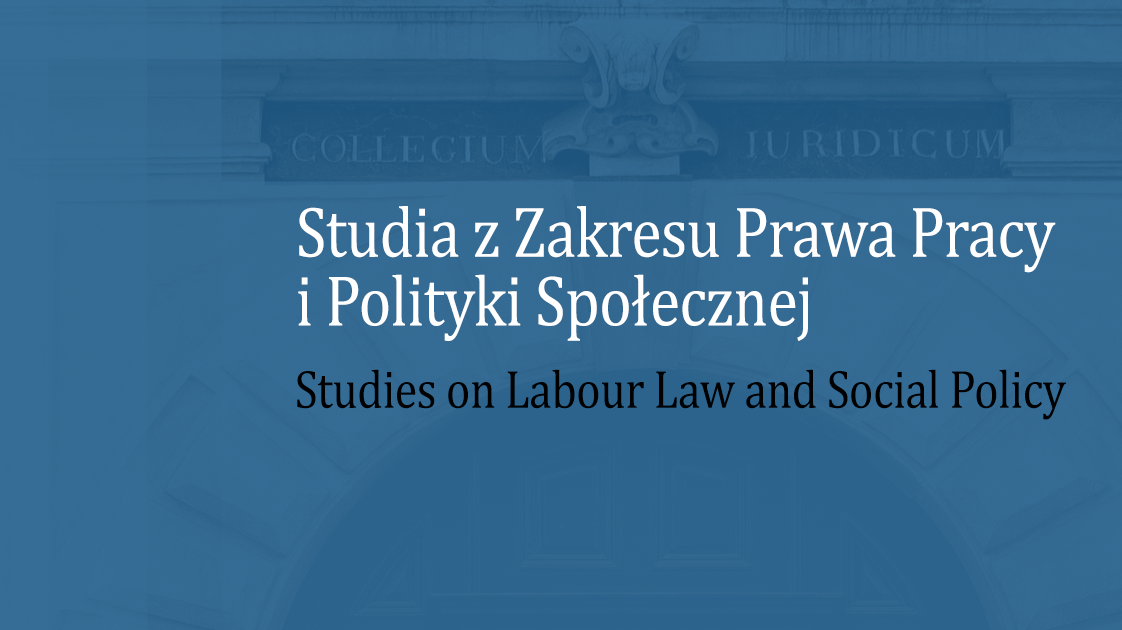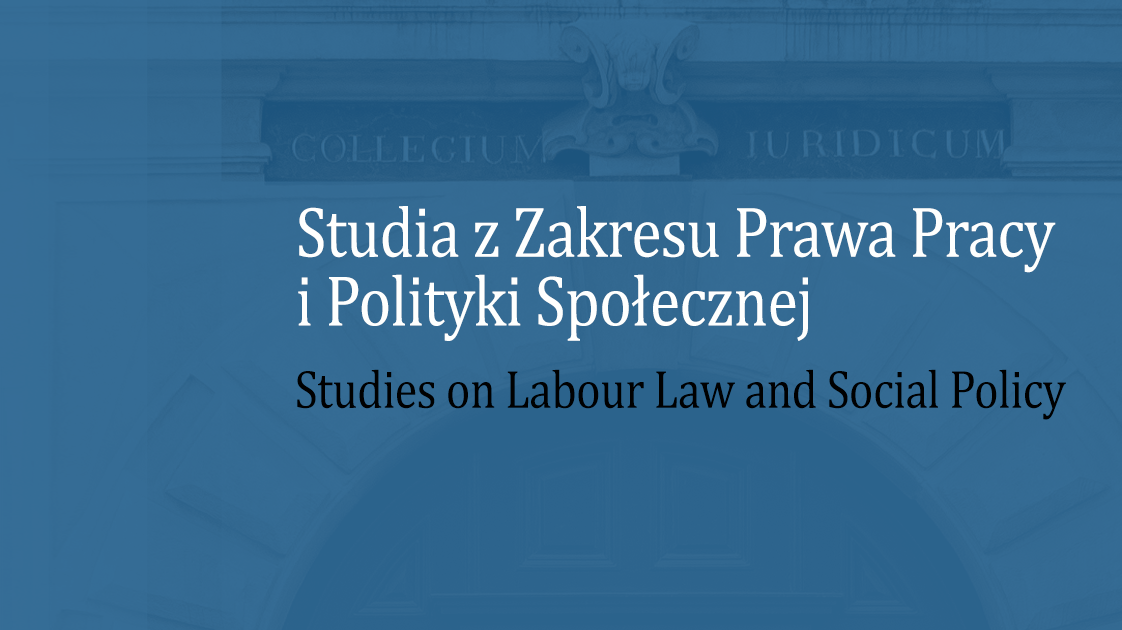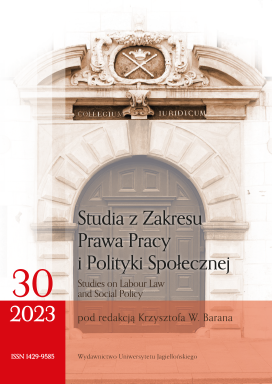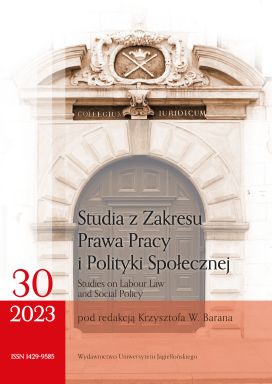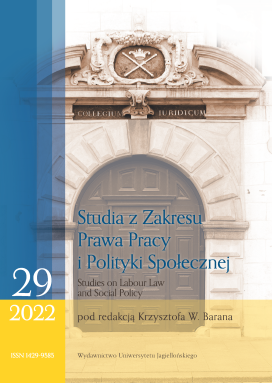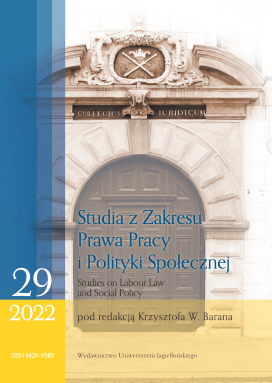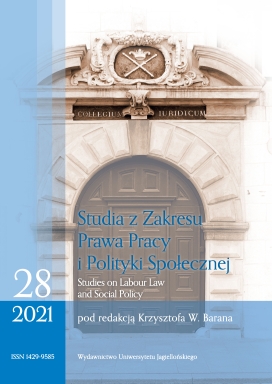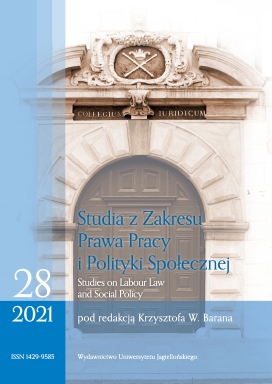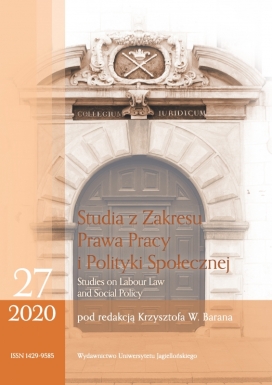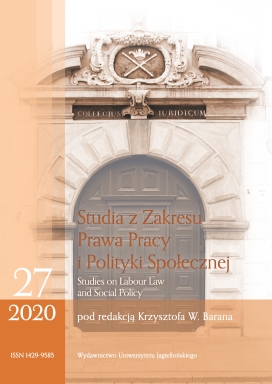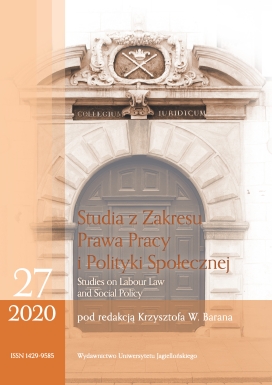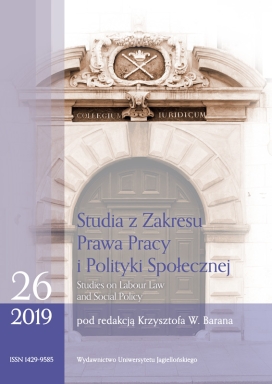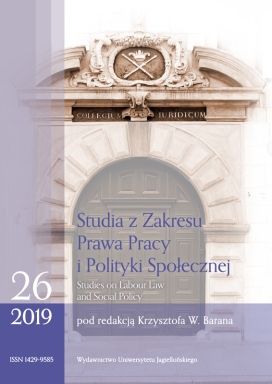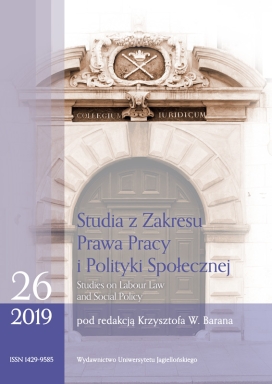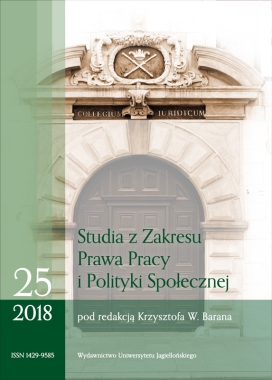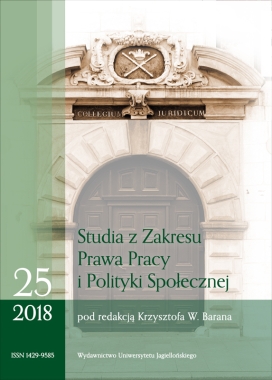This article contains issues of normative character of non-based on statutory provision collective agreements. This issue is very problematic in Polish doctrine and jurisprudence. Generally we can distinguish three points of view. The first negates normative effect of this kind of collective agreements and underlines its voluntary character. The second one fully accepts its normative effect. According to the third one this kind of collective agreement is special kind of civil contract. The last two views accept potential claims of employees based on this kind of agreements.
Firstly, I refer to main assumptions of analyzed problems. In particular I consider difference between normative effect of collective agreements and right to claim based on their provisions.
Secondly, I examine justification of division of collective agreements in two categories i.e. based and non-based on statutory provision collective agreements. I presents few arguments against institution of non-based on statutory provision collective agreements.
Thirdly, I present arguments against qualification non-based on statutory provision collective agreements as “provision of labour law”. In my opinion contrary approach breaches constitutional division between different kinds of collective agreements. Moreover, I criticize common position according to which non-based on statutory provision collective agreements are unnamed collective labor contract regulated by civil law.
Moreover, in this article I present my own approach based on voluntary conceptions. I reckon that provisions of non-based on statutory provision collective agreements play similar role as provision regulated prize. They entitle employer to performance for its employees and entitle employees to receiving it. In the end of article I showcase proposition of new regulations which could resolve main problems with this institution.

